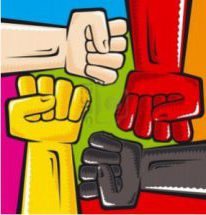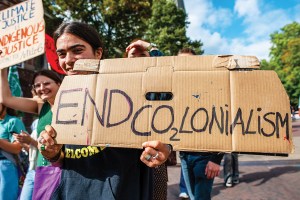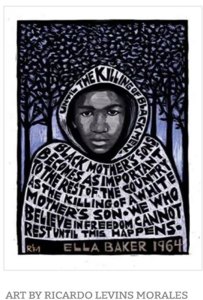The Minnesota statewide Shadow Report, “A Human Rights Perspective on The Land of 10,000 Lakes Disparities,” focuses on the economic and cultural dispossession of people of color and American Indians in Minnesota, documenting several of Minnesota’s racial disparities in several key areas (health, employment, housing, income, food security and access to nutritious food, juvenile and adult incarceration rates) and cites total failure of the federal government to make the racial justice treaty known at the state and local levels of government, nearly 20 years after ratifying it…
BY PETER BROWN, MINNESOTA TENANTS UNION IN SOUTHSIDE PRIDE RIVERSIDE EDITION (3rd Monday) September 2014, VOL. XXIV, ISSUE 27
Geneva, Switzerland — On Aug. 29, 2014, a U.N. human rights committee composed of human rights laws experts from 18 countries issued a report critical of U.S. racial injustice in general and Minnesota racial injustice in particular.
Despite a vigorous defense by a high-level U.S. government delegation, the U.N. committee was persuaded by the documentation and oral presentations by grassroots voices organized by the U.S. Human Rights Network that systemic inequities throughout the U.S. warranted creation of an independent national human rights institution and a national plan of action to comprehensively combat systemic racial discrimination at all levels of U.S. government—federal, state and local.
In addition to calling for concerted action to implement the racial justice treaty throughout the U.S., the U.N. committee gave special focus to 1) the abuse of the rights of indigenous peoples, 2) human rights abuses in connection with immigration law enforcement, and 3) ongoing criminal law enforcement issues having a disparate impact on people of color and American Indians, including racial profiling, criminalization of homelessness, excessive force, and racial disparities at all stages of the criminal justice system for adults and juveniles.
“While the [racial justice treaty] provides U.S. government at all levels (federal, state and local) with direction and guidance to combat the 21st century institutionalized burdens that are experienced disproportionately by persons and communities of color, the persistence of uncorrected disparities shows how poorly the U.S. has done in fulfilling the pledges it made in ratifying the International Convention on the Elimination of All Forms of Racial Discrimination (ICERD) to combat disparate impact of discrimination.”
Further, the U.N. report gives impetus to the advocates’ contention that:
“Based on the systemic conditions for persons of color and American Indians in Minnesota that reports like the Minnesota Department of Health have documented and that this Shadow Report has highlighted, it is clear that the ICERD’s approach must begin to be implemented and incorporated into operations at every level of state and local government, as envisioned in the ICERD itself and pledged by the U.S. Senate to be “fulfilled” when it was ratified the ICERD nearly 20 years ago.”
Shadow Reports filed by three Minnesota groups made substantive contributions to the U.N. review and are reflected in the committee’s “Concluding Observations.”
A Shadow Report filed by Southside Pride focused on discriminatory and predatory lending practices of mortgage bankers in North Minneapolis and illustrated and raised the profile of the racial dimensions of the foreclosure crisis. In its concluding observation on housing, the committee expressed concern for: “ … discriminatory mortgage lending practices and the foreclosure crisis, which disproportionately affected and continues to affect racial and ethnic minorities.”
The Full Southside Pride report available online at http://tbinternet.ohchr.org/Treaties/CERD/Shared%20Documents/
USA/INT_CERD_NGO_USA_17571_E.pdf.
A Shadow Report filed by the Minneapolis-based Advocates for Human Rights entitled “A Report on the Noncitizen Rights in the United States of America” http://tbinternet.ohchr.org/Treaties/CERD/Shared%20Documents/
USA/INT_CERD_NGO_USA_17814_E.pdf,
impacts for instance the committee’s expressed concern for human rights abuses in immigration law enforcement, e.g. “ … increased use of racial profiling by local law enforcement agencies to determine immigration status and to enforce immigration laws; increased criminal prosecution for breaches of immigration law; mandatory detention of immigrants for prolonged periods of time; and deportation of undocumented immigrants without adequate access to justice.”
The Minnesota statewide Shadow Report, “A Human Rights Perspective on The Land of 10,000 Lakes Disparities,” focuses on the economic and cultural dispossession of people of color and American Indians in Minnesota, documenting several of Minnesota’s racial disparities in several key areas (health, employment, housing, income, food security and access to nutritious food, juvenile and adult incarceration rates) and cites total failure of the federal government to make the racial justice treaty known at the state and local levels of government, nearly 20 years after ratifying it, thereby providing a basis in the record for the committee’s findings and recommendations regarding 1) racial disparities in health and access to health care; 2) disproportionate arrest, incarceration and sentencing of members of racial and ethnic minorities, particularly African Americans; 3) racial disparities at all levels of the juvenile justice system; 4) racial disparities at all levels of the juvenile justice system; and 5) the need for a national action plan and independent national human rights institution to comprehensively combat racial discrimination, and coordinate implementation of the racial justice treaty at all levels of U.S. government—federal, state, and local. This report is available online at http://www.cuapb.org/wp-content/uploads/2012/12/MN-Specific-ICERD-SR-2014-Final.pdf.
The U.N. report provides an international context for the racial equity work being done by the Minneapolis City Council in developing a set of policies to give the City Council tools with which to view their decisions through a racial equity lens.
Peter Brown a retired Minneapolis lawyer who is an advocate for housing rights in the Twin Cities.



